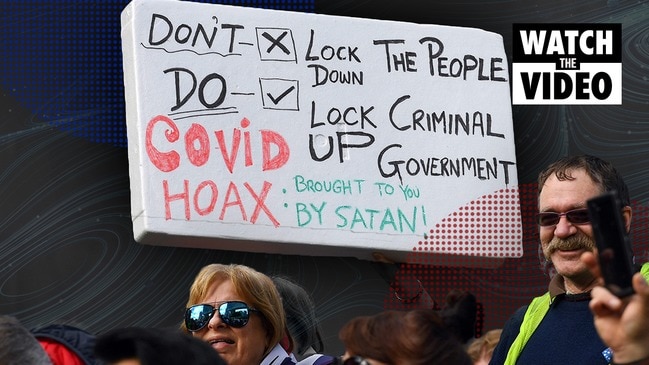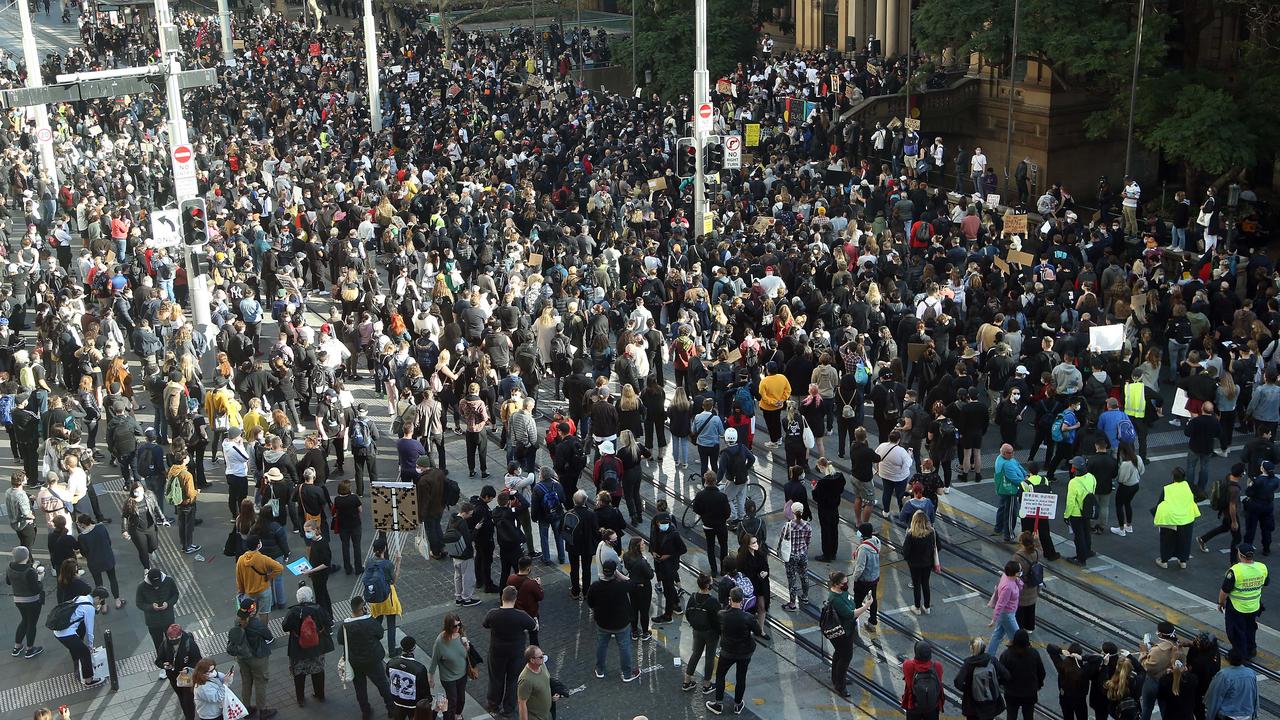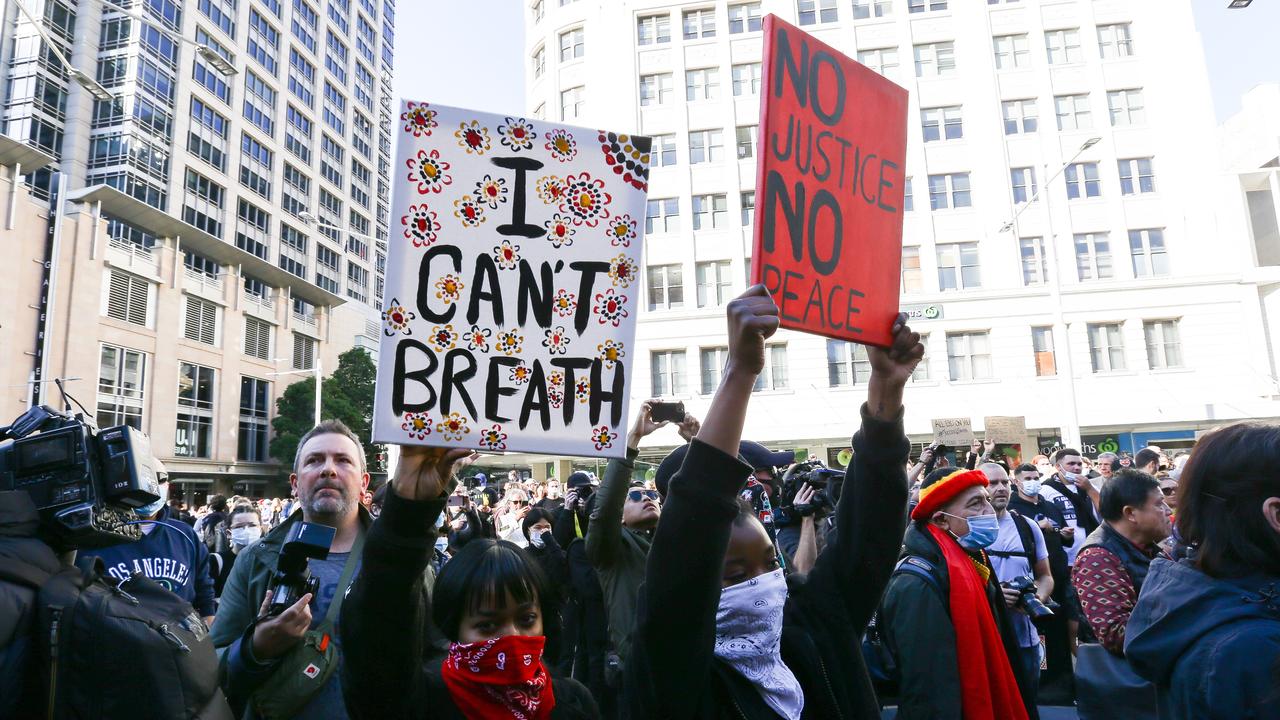Coronavirus NSW: First new case of community transmission in 11 days
New South Wales has broken its nearly two-week coronavirus winning streak, recording its first case of community transmission in 11 days.

New South Wales could break its nearly two-week coronavirus winning streak, potentially recording its first case of community transmission of the virus.
Three new COVID-19 cases were recorded in the state overnight, bringing the total number of cases to 3112 and active cases to 66, with two of the new infections from travellers in hotel quarantine, NSW Health said.
The source of the third case is under investigation, they said, and could break the state’s 11-day streak of no locally-acquired cases, as the only infections reported since May 27 have been among people in hotel quarantine.
NSW Health acting director Christine Selvey reiterated the virus was still likely to be circulating in the community and people with mild symptoms could unknowingly pass it on to others.
“It remains therefore essential that everyone maintains social distancing of 1.5 metres and regularly washes their hands to minimise the risk of the virus spreading,” Dr Selvey said in a video update to media on Monday.
“NSW Health is again urging anyone feeling unwell, even with the mildest of symptoms such as a runny nose or slightly scratchy sore throat, please come forward and get tested so cases in the community are identified as quickly as possible.”
RELATED: Follow the latest coronavirus updates

While encouraging intrastate travel over the long weekend after further virus restrictions were lifted last Monday, NSW Premier Gladys Berejiklian warned residents to take care.
“We’re probably doing better than we anticipated at this stage of the pandemic, however we have to be cautious, we have to be vigilant, we have to be safe to make sure that even the mildest symptom means we get tested,” Ms Berejiklian told reporters on Thursday.
“Please know that while we’re doing well, we want to keep it that way.
“Especially as many of you will be visiting towns and cities across the state that haven’t had a single case, and we want to keep that occurring as far as possible.”
It comes amid fears there could be a spike in virus cases in the coming weeks, after thousands of protesters attended demonstrations in Sydney and around the nation on Saturday in support of the Black Lives Matter movement.
National deputy chief medical officer Paul Kelly said health authorities had to be on alert for more cases.
“We don’t know if anyone in those mass gatherings was infected or infectious, and so it is a wait-and-see approach,” Prof Kelly told reporters in Canberra on Sunday.
“I was encouraged to see the face masks yesterday … those people were doing the right thing.”
Deputy chief medical officer Nick Coatsworth told reporters today the “mass gathering with a protest or large gatherings of people is a substantial risk, still, even with the low numbers of COVID-19 that we see in the community”.
“So, we absolutely need to take care. For those who were at the protests, the message is clear – that if you become unwell, like we say to all members of the Australian community, with respiratory symptoms, get yourself tested. That will be the most important thing going forward.”
RELATED: ‘Can’t disagree more’: Protesters lashed

VICTORIA
Meanwhile, Victoria reported two new cases of coronavirus overnight – one a returned traveller in hotel quarantine, and the other a resident of an aged care facility in the state’s northeast – bringing the state’s total number of active COVID-19 cases to 71.
The Hawthorn Village resident is isolating in hospital, where they were transferred for an unrelated condition.
About 25 residents of the home are in quarantine and the state’s Health Department has contacted affected families and begun tracing close contacts.
Victoria’s chief health officer Brett Sutton echoed the calls Dr Coatsworth, urging anyone who attended the Black Lives Matter rallies over the weekend to get tested immediately if they developed any symptoms.
“Our clear advice was not to attend last Saturday’s protest as thousands of people flooding the city in close contact was a risk,” Prof Sutton said.
“If you attended and go on to develop any symptoms, no matter how mild – it is critically important that you go and get tested.”
RELATED: Aussie protesters urged to self-isolate

WESTERN AUSTRALIA
While there are still 31 active cases of coronavirus in Western Australia, parents and visitors will now be allowed on school grounds as the state government moves to lift more virus restrictions.
Under the changes, which came into effect today, events and activities such as assemblies, excursions, choirs and examinations can resume providing schools abide by a limit of 100 people indoors and 300 people outdoors.
School camps will also be permitted for up to 100 people.
“Thanks to the hard work and diligence of school staff, parents and students, we’re able to make these changes and get schools closer to their usual operations,” Education Minister Sue Ellery said.
“Parents and carers play a big part in school communities and it’s great that schools will be able to welcome them back on-site to meet with staff and attend assemblies and events, in line with physical distancing guidelines.”
In other changes under the phase three guidelines, sports training and swimming lessons can recommence and senior students can engage in work placements as long as employers comply with COVID-19 guidelines.
Canteens can also provide a dine-in service for up to 100 people and school libraries can allow 100 people in a shared space.
RELATED: Nation hides virus data as death toll spikes
Australia’s chief health officers, including Prof Sutton and NSW’s Dr Kerry Chant, met today to discuss the next step in easing coronavirus restrictions, which could permit gatherings of up to 100 people, employees returning to their workplace and interstate travel.
Prof Kelly said yesterday the mass rallies would be taken into account in particular states if “any cases crop up”.
– With AAP




